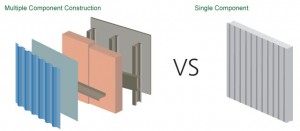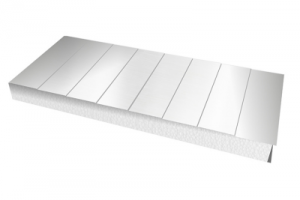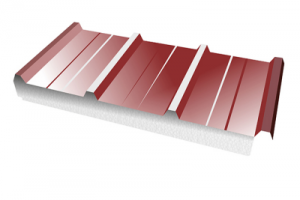 There’s no doubt that you’ll have heard all about the different benefits that industrial building insulation can provide, but it’s important to note that there are several different kinds of insulation, all with different properties providing different benefits. Here’s a short guide on the differences between the different kinds of insulation.
There’s no doubt that you’ll have heard all about the different benefits that industrial building insulation can provide, but it’s important to note that there are several different kinds of insulation, all with different properties providing different benefits. Here’s a short guide on the differences between the different kinds of insulation.
Different Types of Industrial Building Insulation
- Blanket Batt and Roll Insulation
Typically made from fiberglass, this kind of insulation is normally used to insulate walls, ceilings and attics and can be trimmed to fit, meaning it is versatile when it is compared to other kinds of insulation and it won’t leave gaps. Not only is it easy to fit, it can also reduce the amount of energy it takes to warm or cool your property by up to 50%. However, it should not be installed where it would come into contact with moisture, ruling it out for some properties.
- Rigid Foam Insulation
Unlike batt insulation, rigid foam insulation is water resistant, meaning it’s unrestricted when it comes to placement. Not only that, but it comes with a high R value, meaning that this kind is amongst the best when it comes to providing effective insulation for your property. However, unlike batt insulation, it can leave gaps and needs to be taped together in an attempt to combat these gaps. It’s also susceptible to UV rays, which will damage it over time.
- Concrete
Concrete is incredibly effective when it comes to insulating the outside world from noises that occur within it, making it perfect for properties such as factories. Not only that, but the fact it is concrete means that you won’t have to worry about termites, moisture or mold having an effect on the quality and strength of this kind of industrial building insulation. However, it’s much heavier than other kinds of insulation and can also cost more too.
- Spray Foam
Spray foam is a great option when it comes to filling in every nook and cranny of your property. With a high R value and great ease of insulation, there’s no surprise that it’s proven to be so popular. However, it’s not a cheap option, and could lead to problems down the line. Over time, its effectiveness wanes and it can become a hazard, meaning it needs a touch-up every now and again. Not only that, but it can be messy if not done right.
- Loose Fill Insulation
Often made from recycled newspapers and other recycled materials, this is a green option that results in less air leakage and is easily installed, whilst also being an effective insulator to boot. However, it can succumb to mold.
Pick the Right One
When it comes to industrial building insulation, as you can see there are several factors to take into account. Whether it’s sound or heat insulation you’re after, or depending on the use of the property, some will work better than others, which is why it’s important for you to do your homework properly before making your decision.

 Commercial building insulation
Commercial building insulation 

 As much as 40% of your heating costs are associated in one way or another with your roof. This is due to the basic scientific fact that heat rises and so much of the heat you generate to warm the lower floors eventually winds up rising to and escaping through your roof. The rising of heat within the home creates a sort of chimney effect which draws more cold air into the house. The more heat that’s lost through the roof the more cold air gets pulled into the house, the more you’ll have to spend heating that cold air.
As much as 40% of your heating costs are associated in one way or another with your roof. This is due to the basic scientific fact that heat rises and so much of the heat you generate to warm the lower floors eventually winds up rising to and escaping through your roof. The rising of heat within the home creates a sort of chimney effect which draws more cold air into the house. The more heat that’s lost through the roof the more cold air gets pulled into the house, the more you’ll have to spend heating that cold air.